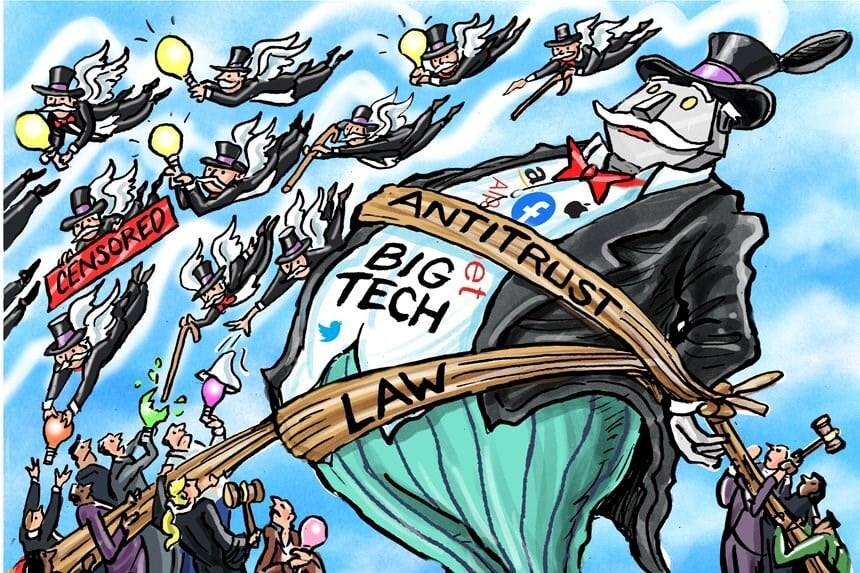UK, EU to investigate Google and Meta anti-trust breaches
Google and Meta may have collaborated to eliminate competition in advertising.
-

Can anti-trust laws hinder US big tech monopolies over the internet? (Photo: Chad Crowe)
The European Union and the UK have opened formal antitrust investigations into whether Facebook's owner, Meta Platforms Inc., and Google sought to illegally cooperate in digital advertising. This would be a rare instance in which major state actors probe two tech giants from Silicon Valley to foil competitors.
Tech regulators have grown increasingly concerned with big tech regarding anti-trust issues and anticompetitive behavior, tax payment, privacy matters, data handling and more.
However, most of the earlier inquisitions were aimed towards individual companies' actions, without taking into account companies that collaborated together on illegal pursuits.
The European Commission, along with the UK's Competition and Markets Authority, said Friday that each is investigating a secret 2018 deal known as Jedi Blue. The file was a part of a lawsuit that was filed a year and a half ago by a group of US states.
The lawsuit, which was led by Texas, contends that Google gave what is now Meta special privileges: access to its ad server, a pervasive tool for allocating advertising space on the internet, in exchange for casting aside rival advertisers that could hamper Google's monopoly over the internet in online advertisements.
In January, Google asked a federal judge on Friday to dismiss the majority of the allegations in an antitrust case brought by the state of Texas.
Both Google and Meta argued against the accusation that their pact is anticompetitive, by claiming that Meta did not gain special privileges.
Recently, the Department of Justice has also gone to investigate the country's largest tech firms for internet monopoly and antitrust breaches.
The investigation could potentially lead to formal charges if evidence of wrongdoing is found. If nothing is found, cases will be dropped, according to the UK and the European Union. The two will be working together in their investigation.
Last year, the EU launched an investigation into whether Google has been abusing its leading role in the advertising sector.
European Commission targets Google in anti-trust complaint
Last month, the European Publishers Council filed a complaint about Google's digital advertising business, strengthening EU antitrust Margrethe Vestager's probe into the dilemma.
In 2020, Google made $147 billion from online aids in revenue, which is more than any company in the world, with searches, Youtube and Gmail constituting the biggest slice of overall sales and profits.
16% of Google's revenue comes from the company's display or network business, where media companies used Google to sell ads on their platforms.
However, the European Commission in June started an antitrust probe into whether Google is biased towards its own advertising tech services, sidelining competing companies, advertisers and online publishers.
The European Commission isn't the only one dissatisfied: Russia, India and even US states have taken legal action against the tech giant.
Axel Springer, News UK, Conde Nast, Bonnier News and Editorial Prense Iberica (EPC), constituting the publishers' trade body, complained to the Commission about Google's stronghold over press publishers through ad tech.
"It is high time for the European Commission to impose measures on Google that actually change, not just challenge, its behaviour," Christian Van Thillo, chairman of EPC, said in a statement. "Google has achieved end-to-end control of the ad tech value chain, boasting market shares as high as 90-100% in segments of the ad tech chain."
Vestager, who launched the probe, has fined Google over $9.2 billion over the years for engaging in anti-competitive practices on 3 accounts.

 4 Min Read
4 Min Read








